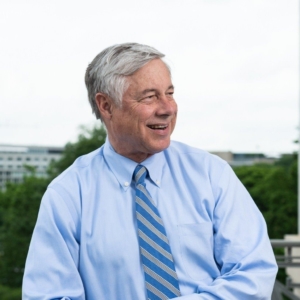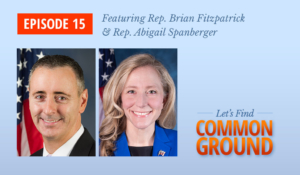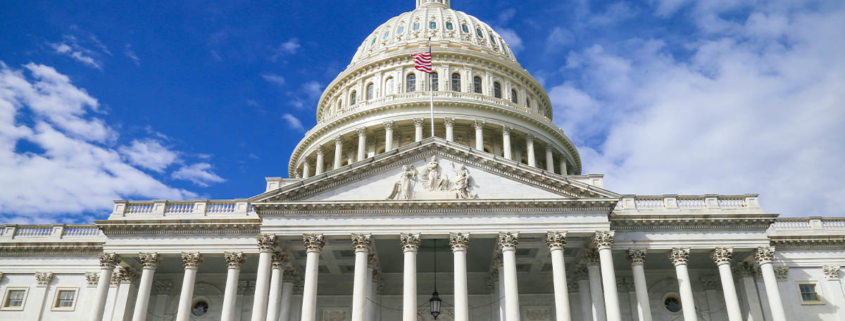What Do the Problem Solvers Do?
What Do the Problem Solvers Do? And what work is cut out for them going forward with the new administration?
When the Problem Solvers Caucus announced its top priorities to address for the 117th Congress, they included some of the country’s toughest issues.
“The Problem Solvers Caucus will continue to work closely, across the aisle, and with both Chambers, to tackle some of our country’s toughest challenges with civility,” the group wrote in its priority agenda. “These problems require bipartisan consensus and respectful collaboration to ensure long-term solutions. Gridlock and partisanship will serve no one.”
The group is optimistic about its ability to break through partisanship — even these days — because this is precisely the reason it was formed, amid worsening cross-aisle relations in 2017.

We caught up with Rep. Fred Upton, one of the caucus’ vice-chairs, shortly before the COVID-19 relief bill, to discuss what makes the caucus unique, what makes it work, and its prognosis for going forward following a blistering start to the year.
CGC: The Problem Solvers Caucus is made up of 56 representatives, evenly split among Democrats and Republicans. What is the organizing principle behind it?
RFU: The mission is, “let’s avoid the gridlock and get things done.” We just want to get things done. That’s the message for America and from our voters. They don’t care if there’s an R or D to your name, they just want things done.
How did you come to join Problem Solvers?
You sort of have to be invited. I have some very good friends on the other side of the aisle. I’ve never been the guy that trashed the other side, and people remember. I know I do…
I think it was my track record as Chair of Energy and Commerce that set the stage [to be invited], and the legacy of the 21st Century Cures Act. It took three years and was one of the last bills Obama signed in 2016. We would not have a vaccine approved for COVID if not for that.
Are there any conditions or rules of membership?
It is of course bipartisan, and the rules are such that if 75 percent of both sides are in favor of something, we will vote as a block. We have to have real trust in each other. As part of our admission to the group we do a civility pledge, so you won’t see any of us go after anyone else. We never donate or campaign against anyone in the room [the caucus].
What were the big challenges of the 115-116 session?
We passed an agricultural immigration bill by almost 100 votes in the House, but the Senate failed to act. The immigration problem is like a third rail — [touch it and] you’ll get accused by the hard right as giving amnesty. But we have to deal with this issue. And police reform. I’m sure you were just as moved as I was by George Floyd’s murder. We need reform, and we need to make sure we don’t defund our police. We were hoping to get a fix on QI [qualified immunity]. That was a big issue. We met for hours. We have a hard enough time recruiting good people, and if they allow officers and families to be sued, no one’s going to join that profession. And COVID relief. This COVID package as it’s moving now is truly partisan, which is really unfortunate, and I assume it’ll be muscled through. I just hope that it does not poison the well on other issues.
How is the work of the caucus changing now with the new administration? How do relationships across the aisle go forward after the events of January 6th?
That’s a very good question. I don’t have the answer. It was a very disturbing day. I was in the capitol that morning—not on the floor during it, I was in my office. I have a balcony, and I was watching the crowd. It was a very scary day. I have some broken glass I’m keeping. But somehow we have to get back on our feet. That’s why they went back in on Jan 6 [to certify]. We have to move on. The proof will be in the pudding.
What do you think holds Problem Solvers together and makes it work, when so much else hasn’t been working to bridge the divide?
I think we just have a true relationship with people. It’s almost a fraternal organization without the hazing. There’s real trust. Dean Phillips [fellow vice chair], took an R seat from a good friend of mine, but I’m all in for Dean. He worked hard. And Anthony Gonzales. We’re close. Would I know him otherwise? Maybe not. He’s not in my building, not in my committee, but I know him pretty well. As I told the group when I chose to run for reelection, “I believe we can make a difference, and to make a difference we have to work together.”
 Get the inside scoop on how the Problem Solvers Caucus works: listen to our interview with caucus members Abigail Spanberger (D) & Brian Fitzpatrick (R).
Get the inside scoop on how the Problem Solvers Caucus works: listen to our interview with caucus members Abigail Spanberger (D) & Brian Fitzpatrick (R).





